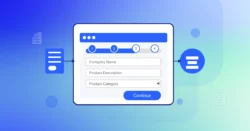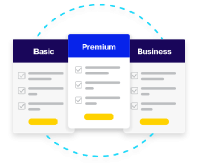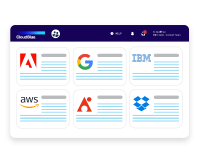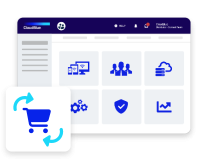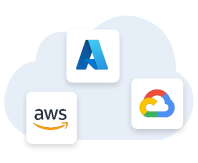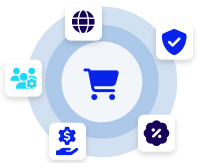Data orchestration is the process of organizing, managing, and coordinating data from multiple sources so it flows seamlessly through different systems and applications.
In the SaaS world, data orchestration has become essential as businesses rely on an ever-increasing number of platforms and tools to manage their data. With data scattered across various databases, SaaS applications, and cloud environments like AWS and Azure, companies need a way to unify this information to make it accessible and actionable. Data orchestration platforms take on this challenge by enabling organizations to connect, transform, and route data efficiently across different systems without manual intervention.
Essentially, data orchestration streamlines the process of moving data to where it needs to be, allowing SaaS companies to make better use of big data and unlock valuable insights that drive decision-making and innovation.
Data Orchestration vs. ETL
A common question is how data orchestration differs from ETL (Extract, Transform, Load). ETL is a specific process used to extract data from one system, transform it to meet the requirements of a target system, and load it into that system. Data orchestration, on the other hand, is a broader concept that can include ETL but goes beyond it by focusing on the entire data flow. Rather than handling just the extraction and loading of data, data orchestration manages multiple data workflows across platforms, incorporating advanced automation and real-time processing to ensure that data is consistently accurate and up-to-date.
For example, an ETL process might transfer data from a SaaS application to a database, but a data orchestration platform would manage this transfer along with all other data processes, optimizing them to work together. With data orchestration, companies can automate complex, multi-step workflows that involve multiple data sources, helping them to maintain a holistic view of their data. Leading platforms in this area, such as those offered by AWS and Azure, provide the tools and flexibility to orchestrate data flows effectively, enabling companies to operate more efficiently in a data-driven world.
Benefits of Data Orchestration in SaaS
Data orchestration tools are critical for SaaS companies that need a reliable and unified data platform to deliver valuable insights to their customers. By centralizing and automating data management, these tools enable businesses to reduce redundancy, eliminate manual processes, and ensure that data is always accessible where it’s needed. This orchestration also allows for quicker and more efficient data handling, which supports faster decision-making and enhances the overall customer experience.
With the ability to automate data workflows, SaaS leaders can reduce operational costs, optimize data storage, and maintain high data quality across various systems. For businesses relying heavily on big data, data orchestration provides a robust framework that makes managing vast data landscapes feasible, scalable, and secure. This approach gives companies a competitive edge, allowing them to turn data into an asset that drives growth and customer satisfaction.




